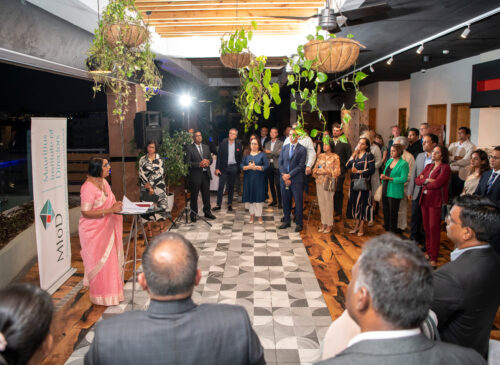In this first quarter, which sectors should recruit the most? And what are the professions for which there is a real demand?
The world of work and the skills required are constantly changing and this year more than most. With many organisations looking to protect their future and return to growth, many of the most in-demand jobs are those deemed critical to project delivery or business operations.
The current situation in the tourism field will certainly lead to an interruption in the recruitment process, whether by hotels or cruise passengers. What are your views?
As we are aware, the COVID 19 Pandemic has created unimaginable disruptions and threats in the hospitality industry but it has also led to job opportunities where professionals would need different skills than thought earlier.
For instance, the entire hospitality industry is now focusing on not just only creating a safe and hygienic environment but also show it to guests to create an impression and confidence. This is creating a need for hygiene managers and auditors. Also, the focus on health and wellness by guests is getting hotels to create a Food and Beverage experience centred around improving health and immunity. This opportunity will boost the need for nutritionists and wellness and personal well-being experts.
Employees from the tourism sector are now uncertain about their job. What can be advised? Isn’t this the right time for them to take training in order to improve their employability after the crisis?
Employees need to take advantage of new job opportunities in the hospitality industry arising as a result of this crisis by focusing on the latest trending skills that are evolving in this new era.
Let us consider multi-tasking skills – Due to lack of demand leading to low price and profitability, much emphasis is being placed on labour cost control. In this scenario, a hospitality professional who has multiple skills and the ability to carry out different jobs will be the priority to keep for filling up upcoming job opportunities in the hospitality industry. Those who are not able to learn a new skill will find it difficult till the time situation is better than normal.
Up-selling skills would be needed to make most of the existing guests. Since guests will be travelling in limited numbers, hotels must be able to make the maximum from them. Upselling, cross-selling, and suggestive selling skills will be in demand.
What about the situation in the financial sector where again, there is a lack of visibility due to the presence of Mauritius on the European Union’s blacklist?
In February 2020, Mauritius was put on the FATF grey list of jurisdictions under increased monitoring and the proposed EU blacklisting is a direct consequence thereof. The EU identified 5 areas of deficiencies, following which the Government of Mauritius has already initiated actions to open a dialogue with the EU and reiterated its commitment to implement the action plan of the FATF at the earliest to exit the FATF and the EU lists.
In the meantime, the government and the private sector are doing their utmost to reassure the international investment community that Mauritius remains a credible and trusted jurisdiction of substance and good repute.
The moratorium period on redundancies has been extended until the end of June 2021. To what extent has this avoided mass layoffs for the beginning of the year?
The economic effects of COVID-19 are already starting to affect businesses, which may be considering redundancies even in the wake of the extension of the moratorium period.
It is important to note that COVID-19 is not going to fade into obscurity within a fortnight but, as the last global recession shows, organisations can bounce back if they are nimble, adaptable and work with their employees to preserve the business and therefore jobs.



